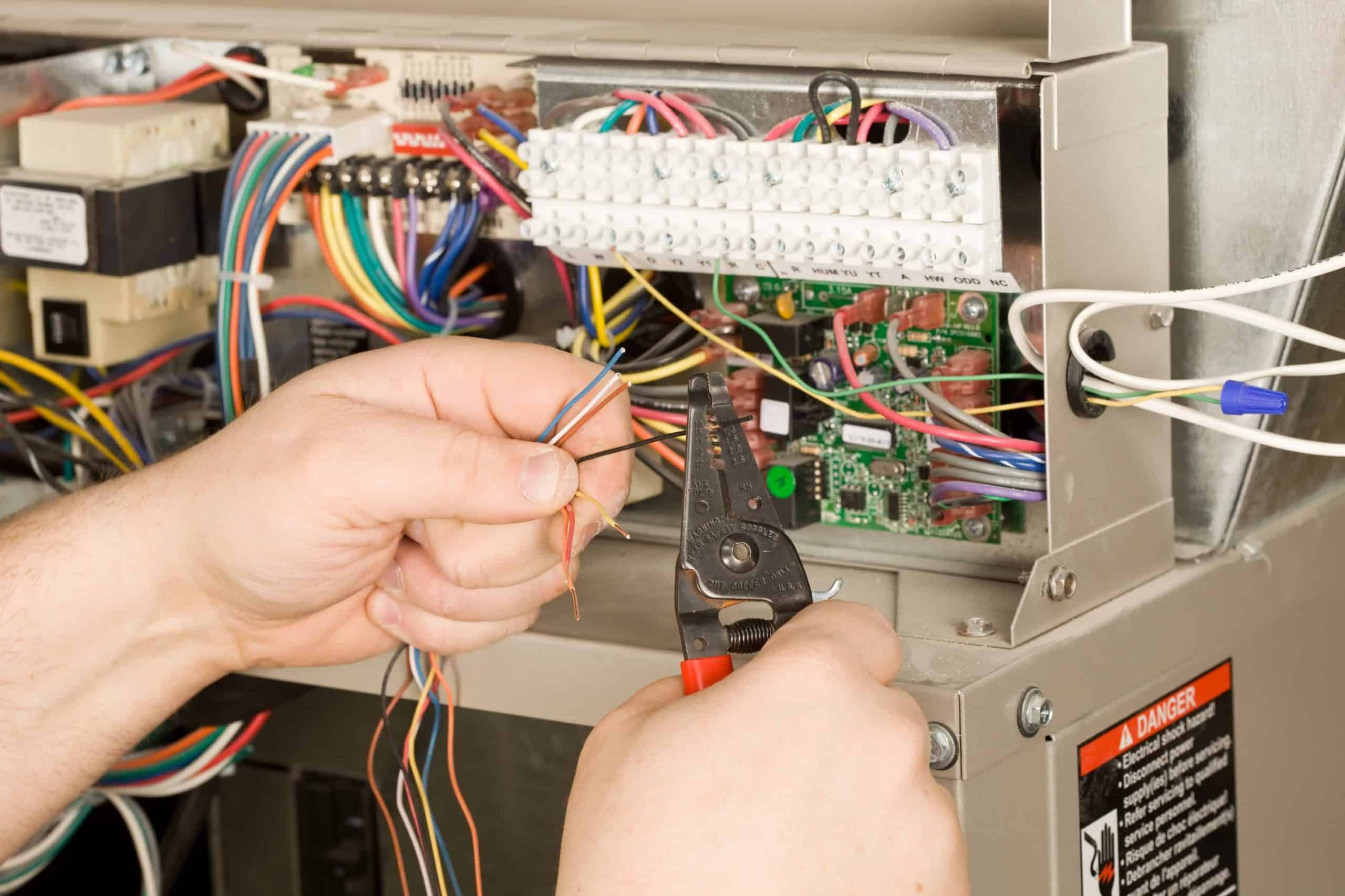
ICON_PLACEHOLDEREstimated reading time: 5 minutes
Is there anything worse than a sweltering summer day when you go inside for some relief from the sweltering Nashville sun only to find your AC won’t turn on? The good news is, it’s pretty simple to run a quick diagnostic test to figure out what’s going on.
Reasons the AC Won’t Turn On
There are a few common reasons for the air conditioning unit not turning on, including:
Power Problems
Step one is to ensure your AC is actually plugged in. If you check and the power and outlet cord look as they should, the issue may lie with the electrical panel. Because air conditioning units require large power surges, units can sometimes blow fuses or trip breakers. Some AC units have overload switches built-in, so check for that too.
Thermostat Problems
If you inspect your unit and find everything looks okay power wise, but your AC is still not blowing cool air, the problem may be with the thermostat. Try putting the unit on the coldest setting to see if it trips the unit to start running. If you can, check to ensure all wiring into the thermostat unit and any batteries are properly connected.
Clogged Filter
Some air conditioning units have a built-in mechanism to shut the unit down if the filter becomes clogged. This is meant to prevent damage to the motor as well as overheating. Sometimes the filter can become so clogged that adequate airflow becomes impossible. Check your unit’s filter and clean it or replace it, if need be.
Clogged Drain
AC units remove moisture from the air— the water generally drains out of a hose or drain pipe. These devices can get clogged with algae, which will cause the unit to shut down. This is an important safety feature to prevent water from backing up into your house or the unit, which can cause damage. You can replace the piping, although sometimes a cleaning will suffice. Use a diluted bleach solution to clean the drain and see if your unit starts working properly again.
Dirty Compressor
Part of a regular maintenance plan for AC units should include cleaning around the compressor and covering it up for the winter months. Throughout the year, dirt, leaves, and other debris can accumulate and prevent the unit from running as it should. It’s best to enlist in the help of a professional to properly clean the unit. Always make sure the unit is off before you start any work on it.
Buildup of Ice
Dirty coils and/or filters that lead to poor airflow and lack of refrigerant are a couple of common reasons for ice buildup on AC units. Try cleaning the unit’s filter and the coils to see if an improvement in airflow fixes the issue. If you find ice buildup on the unit, run the unit with just the fan to melt the ice off. If that doesn’t work to get the unit blowing cold air again, the unit’s refrigerant levels may below.
Condensate airflow switch
Some air handlers have an integrated safety float switch that will trip and shut off the unit when the drain pipe becomes backed up with water. If you find that the switch has, in fact, tripped, you must reset it after you or a professional cleans the condenser drainpipe.
Low Refrigerant Levels
Another common reason a unit will stop blowing cold air is a refrigerant leak. These slow leaks can cause refrigerant levels to drop over time. If this happens, you must check the lines and recharge the system to get it blowing cool air again. This is something that should be done by a professional because of the complex nature of cooling systems and the many chemicals involved.
Wrong Size AC Unit
If your AC unit is not the adequate size for your home, it will not efficiently and properly cool your home. When you install a new system, you must fully understand many factors, including square footage, geographic region, insulation type, and the number of windows, that can impact what capacity you need so you can choose the best unit for your home. This is another time when calling in the professionals is well worth it. A licensed HVAC technician will use the right formula to decide the proper size unit for your home.
Your AC Unit is Old
Just like every household appliance, your AC unit has a lifespan. The older It gets, the more issues you can expect and less efficient it becomes. An old unit will use more energy and will take more effort to cool things down and to keep them cool. The good news is that regular maintenance can prolong the life of your unit. But, at some point, you will need to replace it for improved function, efficiency, and energy consumption.
Depending on the unit’s age and how much work is required for a repair, you may want to update your system. Upgrading is a wise investment in many circumstances, including:
- Your system is more than 10 years old
- The system is consistently having recurring issues
- You are spending lots of money getting the system fixed
When you have a professional technician perform annual inspections on your AC unit, you will stay on top of any maintenance issue and prolong the life of your unit while also avoiding any potential air conditioning outages. A licensed HVAC technician will ensure your system stays running in tip-top shape.
